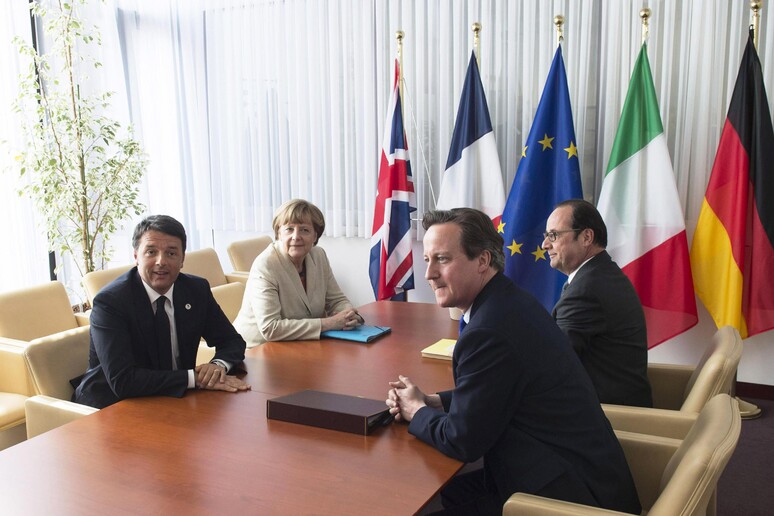European Union leaders met Thursday to discuss the Mediterranean migrant crisis at an emergency summit that Italian Premier Matteo Renzi pressed for following last weekend's boat disaster in which over 700 people are feared to have died.
Just prior, Renzi met with German Chancellor Angela Merkel, British Prime Minister David Cameron and French President Francois Hollande in a four-way summit.
The 28 leaders then observed a minute of silence in memory of the hundreds of drowning victims before beginning their debate, from which the biggest novelty likely to emerge is a decision to triple the funding for the EU's Triton marine patrol mission.
Sources have said the summit will also decide to widen its "range of action" - but without changing its mandate. The Triton operation, run by the EU border agency Frontex, took over from Italy's bigger and better-funded Mare Nostrum search-and-rescue operation last November. But it was given a different mandate from Mare Nostrum, focusing on patrol and rescue rather than search and rescue. Critics - including Amnesty International and the United Nations High Commissioner for Refugees - have slammed Operation Triton as failing to meet the rescue demands of the thousands of people pouring into Europe each year via Italy's southernmost shores, many of them fleeing war in Africa and the Middle East.
Meanwhile, the leaders of the 28 member States squabbled over how to redistribute the rescued migrants and asylum seekers, who are being largely hosted by Italy, Greece, and Malta. The UK has already made known it will help out with the logistics, but not with the migrant themselves.
"We offer...the Royal Navy's Bulwark helicopter carrier, three helicopters and two patrol boats, on condition those saved be taken to the nearest safe country - probably Italy - and that they won't request asylum in the UK," Cameron said just before the summit.
Also on Thursday, European Parliament President Martin Schulz said EU leaders must commit more to sea rescues and less to a militarized solution. "I don't see how the military can neutralized (people traffickers') boats" which should be an international policing matter, Shulz said.
On the humanitarian front, "we need far larger financial commitments, ships and manpower than those currently being debated...we need an intervention in the style of Mare Nostrum" - which saved tens of thousands of lives between October 2013 and October 2014. "I hope this (emergency) council will bring about results in this direction," he said.
ALL RIGHTS RESERVED © Copyright ANSA











